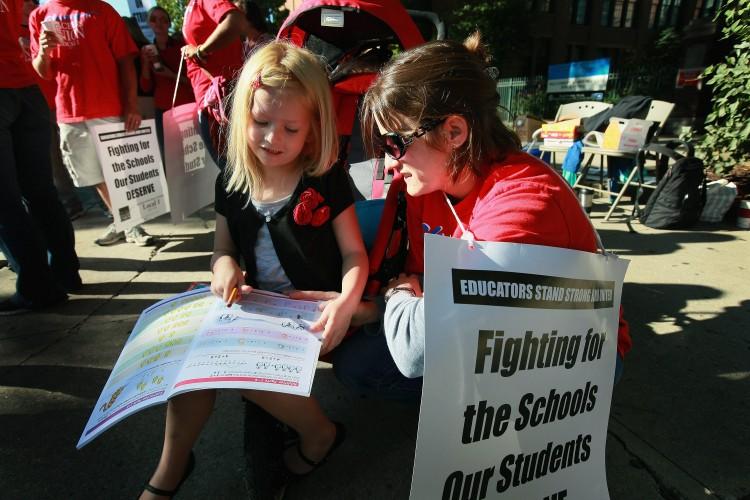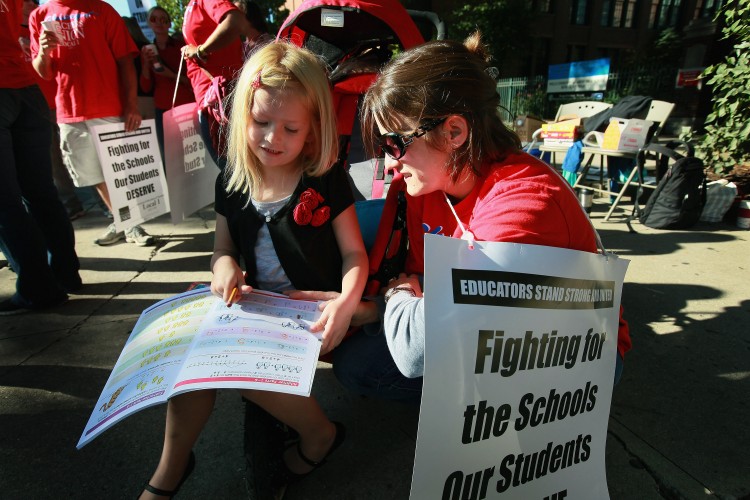Parents scrambled to find places for their children as public school teachers in Chicago started their first strike in 25 years on Sept. 10. Job security, evaluation procedures, benefits, and classroom conditions are key to the strike, while pay is not as big an issue, according to the teachers.
“We are demanding a reasonable timetable for the installation of air conditioning in student classrooms—a sweltering, 98-degree classroom is not a productive learning environment for children,” said Chicago Teacher’s Union President Karen Lewis in a press release.
Chicago’s school system is the third largest in the country. In response to the strike, the school system opened 145 schools, but for only four hours, from 8:30 a.m. to 12:30 p.m.
In Chicago, 84 percent of public school students qualify for the federal free lunch program, so breakfast and lunch were offered at the open school sites.
First Chicago Teachers’ Strike in Over Two Decades
Job security, evaluation procedures, benefits, and classroom conditions are key to the strike, while pay is not as big an issue, according to the teachers.

Teacher Jillian Connolly helps her daughter Mary study math problems while picketing outside of the William H. Wells Community High School on Sept. 10 in Chicago. The Chicago school district is the third largest in the United States. Scott Olson/Getty Images
|Updated:
Mary Silver writes columns, grows herbs, hikes, and admires the sky. She likes critters, and thinks the best part of being a journalist is learning new stuff all the time. She has a Masters from Emory University, serves on the board of the Georgia chapter of the Society of Professional Journalists, and belongs to the Association of Health Care Journalists.
Author’s Selected Articles






